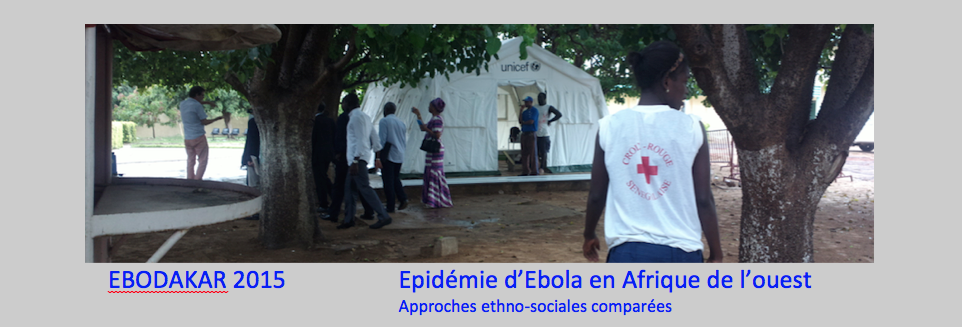
|
|
|
For English speakers
Ebola Outbreak in West Africa. Ethno-social comparative analysis The first symposium on the social sciences and the Ebola outbreak in West Africa, EBODAKAR 2015, took place in Dakar on 19-20-21 May 2015. It brought together researchers in the social sciences (mainly medical anthropology), those affected by the epidemic and actors in the response, for oral presentations, posters, discussions, films and a round table. The EboDakar Symposium was organized by the West Africa HSS Ebola Network (cf. http://shsebola.hypotheses.org), UMI TransVIHMI (IRD/INSERM), the CRCF (Regional Center for Research and Training, Fann, Dakar), with the support of the Department of Sociology and the doctoral school ETHOS, University Cheikh Anta Diop in Dakar (UCAD) and the Centre des Opérations d'Urgence Santitaire (COUS) from the Senegalese Ministry of Health. Scientific objectives The global aim of this conference was to bring together contributions and analysis in anthropology and the social sciences on the West African EVD epidemic and to create a space for sharing between researchers and stakeholders. We identified and clarified the key research topics in a theoretical and/or applied operational perspective and questions that lead to comparative analysis. The conference proposed to address 6 major themes: the social construction of the disease and the epidemic; medical standards, health strategies and their interpretations; ethnography of prevention and preparedness; the experience of patients and their families and of people contacts; the anthropology of bioclinical and therapeutic research; and the sociopolitical aspects of the post-Ebola perspective. The focus was on epidemic, at-risk, and post-epidemic situations, with comparing countries. We appreciated presentations that opened new perspectives, calling for or deepening discussions that benefitted from sharing. Three round tables with public health professionals discussed operational issues. Specific goals were:
This knowledge should inform further response policies and research perspectives, when the epidemic is changing towards an endemic with possible outbreaks of Ebola haemorrhagic fever. To download the book of abstracts, please go to page Généralités et Livre des Résumés. To download presentations, please go to page Communications. |
| Personnes connectées : 1 | Flux RSS |

|
